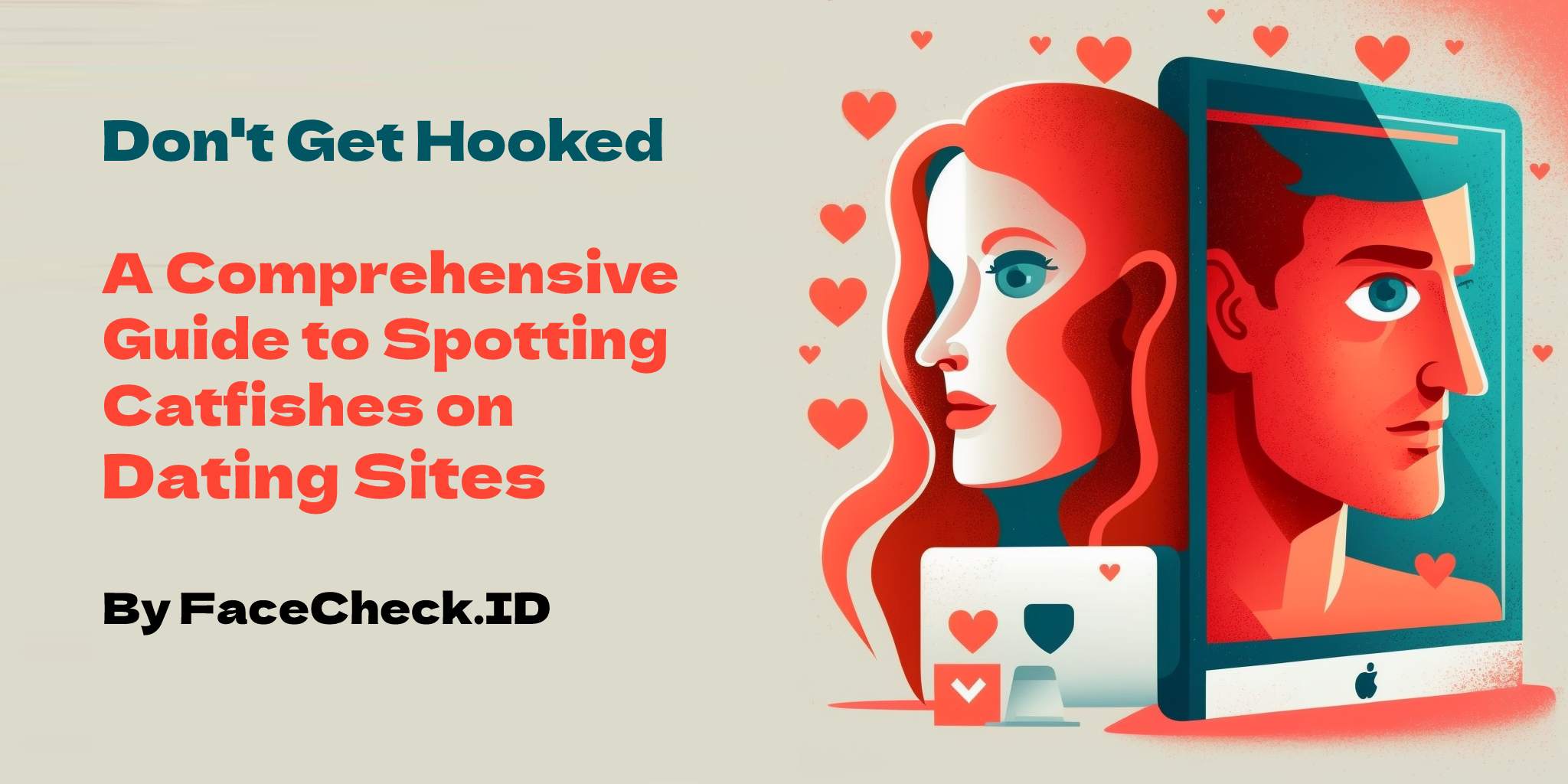How to Spot a Catfish in 2025: Red Flags in Fake Dating Profiles
Online dating is more popular than ever—but so are the risks. In 2025, the rise of AI, deepfakes, and synthetic identities has made spotting a catfish more critical than ever. A catfish is someone pretending to be someone else, often to manipulate or scam romantically. Knowing the red flags can protect you emotionally, mentally—and financially.

In this article, we're going to discuss
- What is Catfishing in Online Dating?
- How Common Is Catfishing in 2025?
- Are Dating Apps Safe?
- Red Flags: Signs You Might Be Talking to a Catfish
- 2025 Catfishing Statistics Snapshot
- Real-Life Catfish Cases
- How to Stay Safe (2025 Edition)
- FaceCheck.ID: Your Ally Against Catfish
- Advanced Safety Trends in 2025
- The Most Complicated Catfishing Scheme Ever Investigated
- Resources on Catfishing & Romance Scams (Updated 2025)
What is Catfishing in Online Dating?
Catfishing refers to creating a fraudulent online persona—typically in a romantic context—to deceive someone else.
The term became popular after the 2010 documentary film Catfish, where a man fell in love online only to discover the person he trusted wasn’t real.
Modern catfishers often use:
- Stolen or AI-generated photos
- Fake names, ages, and locations
- Elaborate stories to gain sympathy and trust
How Common Is Catfishing in 2025?
The problem is growing—and getting more sophisticated:
- A 2025 Norton report says 60% of online daters believe they’ve been contacted by someone using AI.
- According to Gen Digital’s 2025 Cyber Safety Report, 1 in 4 daters globally have been targeted by a dating scam—including 23% exposed to catfishing. Over half encounter suspicious profiles weekly.
- In 2024, romance scams cost victims more than $1.3 billion, with people over 50 disproportionately targeted, losing an average of $15,000.
- In the UK, romance fraud surged by 20% in early 2025, affecting 12% of adults and amounting to over £92 million in losses in 2024.
- AI deepfakes are increasingly used—enabling heists of $35 million in Georgia, €830,000 in France, and other large-scale scams worldwide.
Are Dating Apps Safe?
No platform is fully immune:
Apps like Tinder, Bumble, Hinge, Match, and Grindr offer verification features and reporting tools.
But catfishers often move conversations off the app quickly (WhatsApp, Telegram, email) to avoid detection.
Red Flags: Signs You Might Be Talking to a Catfish
Be alert if:
- The person seems too perfect or declares love too quickly.
- They refuse video chats or avoid meeting in person.
- Their photos look like stock images or too polished.
- They frequently have excuses for not meeting.
- They ask for money or personal favors.
Use a reverse image search with FaceCheck.ID to see if their pictures appear elsewhere.
2025 Catfishing Statistics Snapshot
- 37% of online daters report encountering romance scams.
- 23% of scams are specifically catfishing attempts.
- 65% of users worry about catfishing; nearly half say they’ve been victimized.
- The average financial loss in a catfishing scam is now $3,200.
- Older adults (40–69) remain the most targeted group, with women slightly more affected than men.
Real-Life Catfish Cases
Maria from Spain lost thousands of euros after falling for a fake businessman who turned out to be a group of scammers in Africa.
Diane from the U.S. lost $270,000 on Match.com when a scammer impersonated a former diplomat.
These cases highlight the same patterns: love bombing, refusal to meet, and sudden requests for money.
How to Stay Safe (2025 Edition)
- Never send money to someone you haven’t met in person.
- Demand video chats before getting serious.
- Cross-check details: jobs, photos, and lifestyle claims.
- Use FaceCheck.ID to verify profile photos.
- Report suspicious accounts to the platform immediately.
FaceCheck.ID: Your Ally Against Catfish
With FaceCheck.ID, you can:
- Upload a photo and see where else it appears online
- Detect stolen or AI-generated images
- Verify whether a dating profile matches real social media presence
This makes it far harder for catfishers to trick you.
Advanced Safety Trends in 2025
- Crowd reporting: Apps inspired by OkCupid-style moderation allow users to flag suspicious profiles. A Mashable-cited study found up to 40% of users drop off when stronger verification (like manual image checks) is required. This shows higher friction, but also that community reporting can deter fake accounts.
- Blockchain identity badges: New Web3 dating projects are testing decentralized ID verification. Verified profiles get blockchain badges that are tamper-proof. While often cited as potentially cutting fake profiles by 40%, this number is speculative and not backed by empirical research.
- AI deepfake detection: AI-powered tools can now scan profile images and video calls to detect manipulation. This helps distinguish authentic users from AI fakes.
The future of safe online dating may rely on crowd reporting + blockchain verification + AI deepfake detection working together.
The Most Complicated Catfishing Scheme Ever Investigated
Resources on Catfishing & Romance Scams (Updated 2025)
- FTC – Romance Scam Protection (2025 update)
- Gen Digital 2025 Cyber Safety Report
- Norton 2025 Report on AI & Online Dating Scams
- BBB Study: Online Romance Scams
- FBI – Romance Scams
- Action Fraud UK – Dating Fraud (2025)
- TechRadar – AI Deepfakes in Romance Fraud
Read More on Search by Photo
New Search-by-Face Tool for Investigative Journalists
Investigative journalists face a nearly impossible task: sifting through thousands of images to identify key figures in corruption, trafficking, or crime networks. Facial recognition technology is changing the game - but how do reporters balance this power with ethical responsibility?
Popular Topics
Deepfake Identity Social Media Image Search How To Scammers Catfishing Fake Profiles Romance Scam Online Dating Fake Accounts Online Dating Scam Verify Profiles Synthetic Identity Photo Lookup Ai-Generated Image Deepfake Detection Deepfake Detector ImpersonationHead-to-Head Comparison: PimEyes vs FaceCheck for Face Searches
